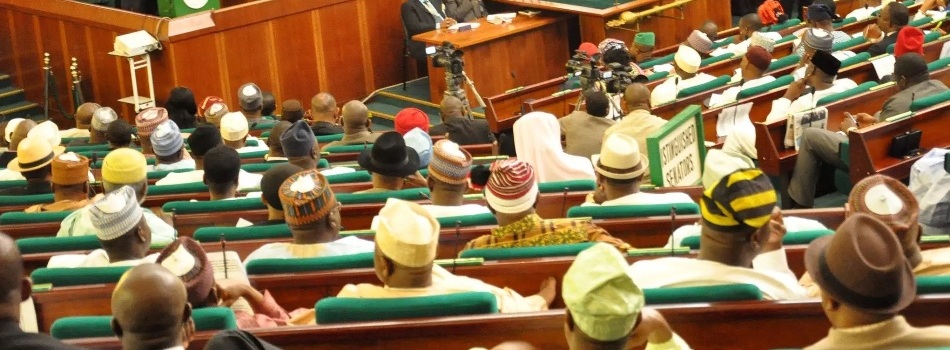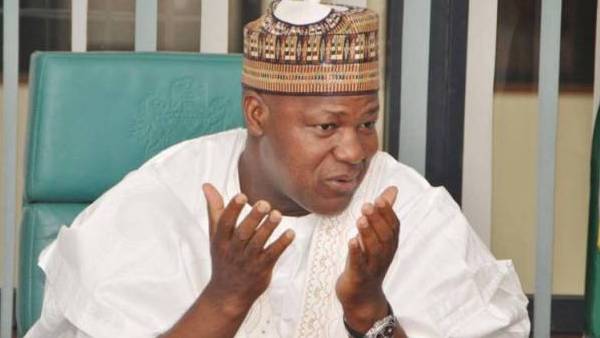Speaker of the House of Representatives, Hon Yakubu Dogara, has expressed support for auditing and restructuring the existing federal system to give a sense of belonging to all Nigerians.
He said that for true federalism to be achieved in Nigeria, a unique system of federalism that best suits Nigerian people and the local circumstances in the country must be created, in addition to having leaders who are visionary, selfless, prudent, intelligent and indefatigable and having integrity and honour.
He said these while speaking on the topic, “Reforming the Nigerian Federation: Which Way Forward”, at the 3rd annual Political Summit organised by the Save Democracy Africa in Abuja.
The Speaker noted that, “The talk of Nigeria’s success or genuine federalism can no longer hold waters giving the state of internal insurgencies, divisiveness, ethnic and religious schism witnessed in several parts of Nigeria. Efforts at wishing away the problem associated with Nigerian federation have only resulted into several tribal, ethnic and religious movements that have even metamorphosed into terrorist syndicates.
“One can, therefore, no longer fold his arms but engage some of the issues that have confronted us as a nation and threatened the Nigerian federation. This forum provides one of the opportunities for such interrogation. Accordingly, I commend the organisers for bringing this issue to the front burner once again.
“That Nigeria could survive despite predictions to the contrary by the World Powers not only portrays a ray of hope but also demonstrate that Nigerian Federation has come to stay.
“It is therefore incumbent on us to fashion out our own type of federalism that is best suited to our people and to local circumstances. There should be genuine efforts to build the nation. Therefore ethnic, religious and sectional agenda should take back place. The essence of federalism is to foster unity and development. This has however, not been achieved.
Consequently, the recruitment processes of our elective office holders are being re-visited in the Electoral Amendment Bill to ensure that the system is able to recruit the best at all strata of leadership. We need leaders who are visionary, selfless, prudent, intelligent and indefatigable and having integrity and honour.”
He added that the current National Assembly has shown enough determination to ensure that the federation of Nigeria is managed effectively for the good of every citizen in its several initiatives to address imbalances.
He also added that to take Nigeria to its pride of place, a reorientation of Nigerians to address the political and economic malaise they face must be addressed, along with every other possible measure to take Nigeria to where it rightly belongs among the comity of Nations given her huge and rich minerals and agricultural resources, and population.
Hon Dogara stated, “There should be massive awareness to change the mindsets of the rulers and the ruled. This is where there is the need for proper education and awareness for both the rulers and the ruled. I challenge our tertiary institutions to break the disconnect between them and the political institutions and industries not only to fashion out the appropriate curriculum to drive this new orientation to confront our political and economic malaise but also to lead cutting edge research in providing correct local solutions to our diverse of problems.”
He also identified the pedestals upon which Nigerian Federation has thrived over the years as multi-party system that allows wider participation in the political process, equity distributive principles of revenue from the Federation Account, states creation, special intervention programme to address specific problems where there are genuine cases of imbalance, marginalisation and injustice such as NDDC and NEDC, growing synergy and improved communication between the National Assembly and the Executive, the judiciary, practice of federal character in the composition and conduct of public institutions at state and federal levels.
The speaker also identified some emerging issues in Nigeria’s federation political gerrymandering, corruption and nepotism, state creation and boundary delimitation, electoral boundary manipulation that discriminates against voters on account of tribe, language, religion, or related status.
“The same is also true of boundary adjustments, state creation and Local Governments in Nigeria. The minority tribes have complained of being short-changed. The issue of fiscal federalism and resource control. The allocation of revenue in Nigeria is presently heated as there are always allegations and counter-allegations of manipulations against the federal government by states. There are also allegations of zero allocation to local governments by states despite very clear constitutional provisions. In addition, there has been complaint of total neglect of the states that generate the revenue as such the derivative formula has been very contentious. There is over concentration of powers and responsibilities on the federal government. There are several responsibilities that can better be handled by the states. The power sharing between the Federal Government and the states will have to be revisited and the issue of the autonomy of local governments in Nigeria which state Houses of Assembly keep voting against,” he further stated.
Hon Dogara, therefore, stressed the need to fashion out our own type of federalism that is best suited to our people and to local circumstances, with genuine efforts to build the nation, the need for proper education and awareness for both the rulers and the ruled, awareness and re-orientation on the issue of political gerrymandering, and vesting the responsibility of delineating constituencies to the Boundary Commission as is the case in several countries like Britain.
He added, “The issue of resource control must be properly addressed. The communities where those resources are found should be adequately compensated. The Host Community Bill initiated by the House of Representatives on the Oil and Gas industry will be a test case. The call for resource control may by implication have a semblance of territorial devolution.”
The speaker noted that since assumption of the 8th House of Representatives, they have engaged the executive (mostly ministers and heads of parastatals) in several sectoral debates at plenary and have enacted cutting edge legislations in emerging, reviewed over 300 laws with the hope of bringing them in tune with modern realities and has been guided by the need to adjust our political, social and economic system to meet local circumstances and engraft the existing laws to conform.

